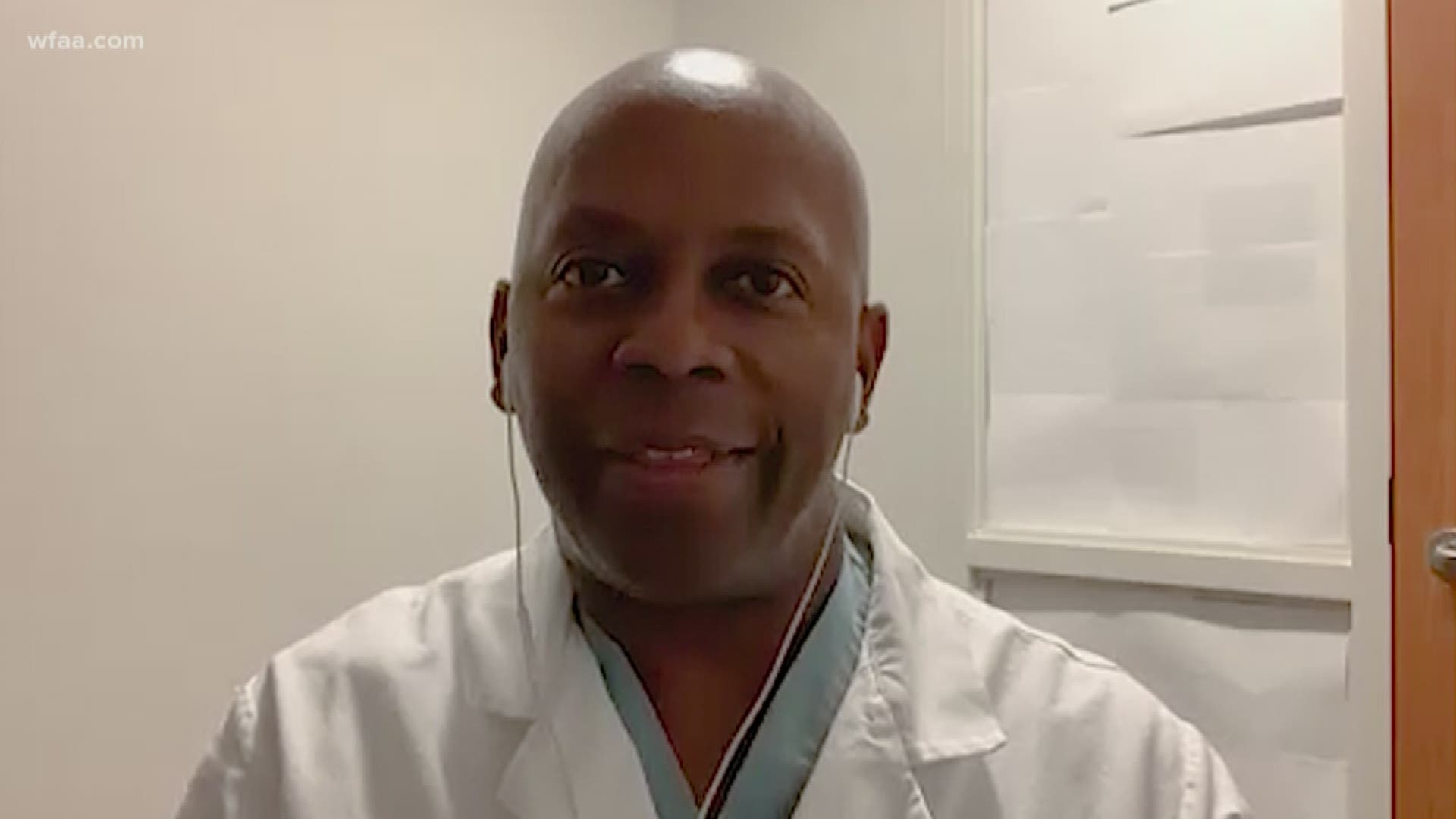DALLAS — People of all ages, races, faiths and fortunes call North Texas home.
Any of us could get COVID-19. All of us deserve a chance to fight it.
That is why Dr. Brian Williams is a physician.
“I’m not surprised that the vulnerable populations are suffering,” he said. “My reason for getting into medicine was to serve these populations.”
Williams used to be a trauma surgeon at Parkland Hospital in Dallas.
He was there the night seven Dallas police officers were ambushed. And in the days that followed he spoke candidly about implicit bias – not just in policing – but in every walk of life.
“We cannot ignore that there is implicit racial bias that is within the healthcare system,” he said Thursday from The University of Chicago, where he now co-directs the surgical ICU.
He’s currently caring for patients battling COVID-19, but he’s also maintaining a presence in Dallas.
He still acts as a special adviser for health equity in Dallas County, assisting in the county’s coronavirus response.
“Physically I’m in Chicago, but my heart in many ways is still in Dallas,” he said.
He said the outcomes seen in Chicago – where 70% of deaths from COVID-19 have been African Americans – are likely going to be mirrored across the country.
RELATED: Black COVID-19 patients in Dallas County, nationwide are hospitalized at higher rates, data shows
“Clearly COVID has shown that if you are poor, which is a marker for being a racial and ethnic minority, outcomes can be deadly.”
“This is not something new. This is pre-existing. There are these systemic inequalities that are rearing their deadly impact as a result of the coronavirus infection,” he said.
Williams said North Texans should find comfort in knowing a plan has been in place for years to remove racial inequalities from healthcare decisions during a crisis.
The North Texas Mass Critical Care Plan offers doctors and nurses a road map – through algorithms and flow charts – to determine a score for a patient based on their organ function.
That objective score would help providers decide who gets admitted first, who goes to the ICU, or who gets a ventilator.
Things like age, race, income, gender, and whether the patient is insured – none of those factor into that score.
“The goal is to ensure that you can allocate critical care resources to the maximum number resources for the maximum good,” he said.
“But there are entrenched systemic inequalities within Dallas and everywhere that make black Americans and Latinos vulnerable. They have decreased possibilities of accessing these resources as a pandemic crisis progresses.”
Williams says the plan helps ensure fair and impartial care in a system he believes isn’t always fair or impartial.
“It may not be perfect, but considering the situation we’re in, it’s the best we can do and we certainly want to ensure that no one gets left behind.”

